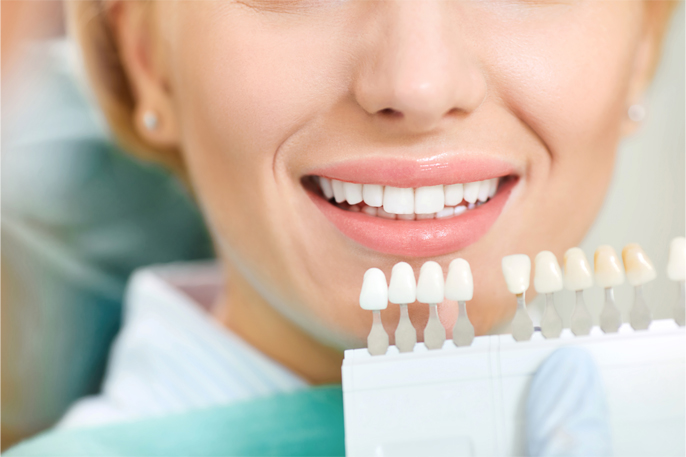Mouthwash, also known as mouth rinse, has a rich history dating back thousands of years. Ancient cultures, including the Egyptians, Greeks, and Romans, used various natural ingredients to freshen their breath and promote oral hygiene. These early mouth rinses often included ingredients like herbs, wine, and even urine, believed to have antibacterial properties.
Continue reading “The Ins & Outs of Mouthwash | Fayetteville, GA”Signs You Are Neglecting Your Oral Health | Fayetteville, GA
Maintaining good oral health is essential not only for a confident smile but also for overall well-being. Neglecting oral hygiene can lead to various dental issues that may affect your quality of life. Here are some warning signs of poor oral health that you should not ignore:
Continue reading “Signs You Are Neglecting Your Oral Health | Fayetteville, GA”The 7 Most Important Oral Care Habits | Fayetteville, GA
Maintaining good oral hygiene is essential for overall health and well-being. Effective home oral care practices can help prevent tooth decay, gum disease, and other dental issues. Here are some key ways to care for your teeth and maintain oral hygiene at home:
Continue reading “The 7 Most Important Oral Care Habits | Fayetteville, GA”An Introduction to Dental Instruments | Fayetteville, GA
Dental instruments play a crucial role in maintaining oral health, particularly during routine cleanings. These specialized tools allow dental professionals to effectively clean teeth, remove plaque and tartar, and ensure the overall health of the gums. Here’s a look at some of the primary instruments used during routine dental cleanings:
Continue reading “An Introduction to Dental Instruments | Fayetteville, GA”The Role Mouthwash Plays in Oral Hygiene | Fayetteville, GA
Mouthwash may seem like an unnecessary step for one’s oral care routine, and it’s true that in general, you can go without it. Yet, mouthwash could be a great way to gain peace of mind, keep tarter buildup at bay, and make you feel fresh before starting your day.
Continue reading “The Role Mouthwash Plays in Oral Hygiene | Fayetteville, GA”What To Know About Using Charcoal for Oral Care | Fayetteville, GA
In recent years, charcoal has gained popularity as a trendy ingredient in oral care products, promising a natural and effective solution for achieving a brighter, whiter smile. From charcoal toothpaste to charcoal-infused toothbrushes, the market is flooded with these products. However, before jumping on the charcoal bandwagon, it’s crucial to understand the pros and cons associated with using charcoal for oral care.
Continue reading “What To Know About Using Charcoal for Oral Care | Fayetteville, GA”The Tell-Tale Signs of an Oral Infection | Fayetteville, GA
Our oral health is a crucial aspect of our overall well-being, and paying attention to the signs of potential issues is essential. One common concern that often goes unnoticed is oral infections. In this blog post, we will explore the various signs that may indicate the presence of an oral infection and why it’s vital to address these issues promptly.
Continue reading “The Tell-Tale Signs of an Oral Infection | Fayetteville, GA”Tooth Discoloration Is More Telling Than You May Think | Fayetteville, GA
Maintaining proper oral health is not only crucial for a bright smile but also for overall well-being. One often overlooked indicator of improper oral health care is tooth discoloration. Discoloration can manifest in various ways, ranging from yellowing to brown spots, and can be a warning sign of underlying issues that demand attention.
Continue reading “Tooth Discoloration Is More Telling Than You May Think | Fayetteville, GA”Effective Tooth Brushing Tips | Fayetteville, GA
A sparkling smile not only enhances your appearance but also reflects good oral health. One of the simplest yet crucial habits to maintain that bright smile is proper tooth brushing. In this blog post, we’ll explore seven effective ways to brush your teeth, ensuring your dental hygiene is top-notch.
Continue reading “Effective Tooth Brushing Tips | Fayetteville, GA”The Relationship Between Oral Bacteria and Sugar | Fayetteville, GA
The human mouth is a bustling ecosystem, home to a diverse community of microorganisms, including bacteria. While these microscopic residents play crucial roles in maintaining oral health, an intricate dance unfolds when sugar enters the scene. This blog post delves into the fascinating interaction between sugar and bacteria in the mouth, shedding light on the consequences of this sweet partnership.
Continue reading “The Relationship Between Oral Bacteria and Sugar | Fayetteville, GA”





